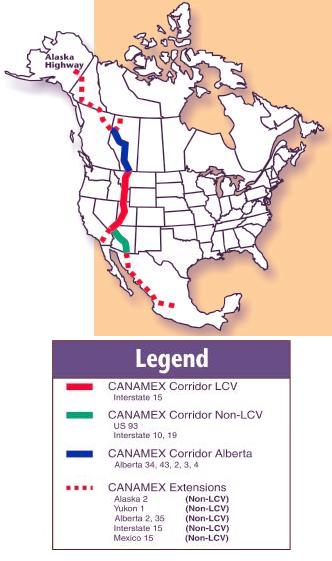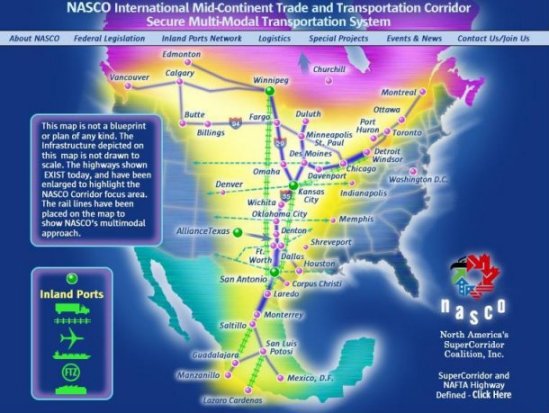On March 18, 2005, Judge George Greer ordered that Terri Schiavo's feeding tube be removed. When Greer did so, he helped set in motion a series of events that he could never have anticipated. Despite the extraordinary attention, Schiavo's was not the most closely watched death in the early spring of 2005. Half a world away, John Paul II was also dying, he of natural causes.
After 13 agonizing days, Schiavo died on the morning of March 31. On that afternoon, in a dusty pit stop of a Kansas town called Herington, the FBI entered an abandoned home, searched it, then promptly called in the Topeka bomb squad and evacuated the neighborhood. Although these events were not at all related, the timing almost assuredly was.
Speaking of timing, the next morning, Friday, April 1, the Department of Justice allowed former Clinton national security adviser, Sandy Berger, to plead guilty to a single misdemeanor charge for the unauthorized removal and retention of classified documents.
The memorable and useful Clinton-era phrase for these maneuvers is "news dump." On the day after the Berger pleading, as anticipated, Pope John Paul II died. The DOJ could not have chosen a more opportune time to bury these two stories.
On the surface, the dumping of these stories by a Republican administration made little sense. Both had the potential to embarrass the Democrats, the Berger story in a significant way.
The House Committee on Government Oversight and Reform would aptly call Berger's behavior "a disturbing breach of trust and protocol that compromised the nation's national security." If he had chosen to, the Republican attorney general could have put the Democrat Berger on trial and likely in prison.
As to the house in Kansas, that had been the home of Oklahoma City bomber Terry Nichols. Despite the FBI's allegedly exhaustive investigation, the explosives had been sitting there for the past 10 years, still another embarrassing oversight in a case plagued by missteps on President Clinton's watch.
As I watched these events unfold two years ago, I presumed that the Bush DOJ chose not to exploit these stories for reasons of national security. Although seemingly unrelated, both of these stories lead to the same larger secret, a secret that Berger risked his career to conceal, a secret that if revealed had the potential to destabilize the nation during a time of war.
As I have since learned, however, the Bush White House is not fully in control of its own Justice Department and FBI. In truth, the decision to protect Berger may have more to do with saving the Clinton legacy than with stabilizing the nation.
In last week's column, I noted that President Clinton had reviewed a document on the Bojinka plot that directly referenced plans to use airplanes as flying bombs, and he did so in the wake of the July 1996 destruction of TWA Flight 800, five years before 9-11. More damning, he left his own notes on these documents.
Berger's task was likely to make sure all references to the Bojinka plot and/or TWA Flight 800 were purged from the Archives, especially any documents with hand-written notes that led back to himself, Clinton, and the architect of the TWA 800 "exit strategy," anti-terror honcho Richard Clarke.
Curiously, the explosives cache found in Kansas leads to exactly the same secrets. In the way of background, the FBI first learned of a possible terrorist plot to mark the 10th anniversary of the Oklahoma City bombing on March 1, 2005. Stephen Dresch, a forensic economist, and his intrepid colleague, Angela Clemente, had informed the FBI by fax and phone on that date. On March 3, Dresch informed me of the same.
By March 11, Dresch had identified the house where the explosives were stored and the ultimate source of the tip, Oklahoma City bomber Terry Nichols. The man who had pointed Dresch and Clemente to the explosives was none other than Gregory Scarpa Jr., a fellow inmate of Nichols in their Colorado prison.
For at least three weeks, the FBI knew the location of the house and did nothing. Even after the tip proved accurate, the Bureau has refused to acknowledge that it was Scarpa who led them to Herington. After all, if it were Scarpa, how to explain the potentially lethal delay?
Two weeks ago, after completing his investigation of the Oklahoma City bombing, Rep. Dana Rohrabacher ended the mystery. In a thank-you note to Clemente, Rohrabacher casually affirmed, "It was you and Dr. Dresch, acting on a tip from Gregory Scarpa Jr., who learned that the FBI missed a stash of explosives." He added, "You have a real knack for investigation."
Scarpa has a history of informing. In the summer of 1996, while awaiting trial on RICO charges in a New York City jail, he collaborated with the FBI on an elaborate sting to evoke information from his then prison mate, Ramzi Yousef. Yousef was the mastermind of the first World Trade Center bombing and the designer of Bojinka, a plot to blow up planes and/or use planes as bombs, for which he was then on trial.
Through no fault of Scarpa's, the sting backfired. Using the outside line that Scarpa and the FBI had set up, Yousef communicated in his native Baluchi to his fellow conspirators, 9-11 mastermind Khalid Sheik Mohammed among them. The FBI could not readily translate.
On July 17, 1996, TWA Flight 800 was destroyed off the coast of Long Island. On the FBI line, Yousef claimed credit for the destruction of the aircraft. Whether or not he was telling the truth remains uncertain. What is undeniable, however, is that on July 18 Yousef asked for a mistrial, citing the newly hostile environment for airplane bombers like himself.
Embarrassed, the Clinton Justice Department came down hard on Scarpa. U.S. Attorney Valerie Caproni, who oversaw the sting, prosecuted Scarpa and buried him for a hard 40 at the Florence, Colo., Super Max. This was an unusually stiff penalty for a non-lethal RICO conviction, especially for a guy who had risked his life to collaborate with the FBI. (For a complete account of the Scarpa story, I would recommend Peter Lance's recent book, "Triple Cross.")
Caproni, by the way, is the same U.S. attorney who illegally seized the authority for investigating TWA Flight 800 away from the NTSB and gave it to the FBI. This same multi-tasking Caproni oversaw the prosecution of reporter James Sanders and his wife Elizabeth for Sanders' efforts to investigate Caproni and her patently illegal maneuver.
Today, Valerie Caproni is the general counsel of the FBI, the Bureau's top legal position. And this brings us to what may well be the primary reason for the failure of the Bush Justice Department to pursue the Berger case as it should have.
The FBI and the Department of Justice, which oversees the FBI, are riddled with Clinton-era holdovers, many of them in key positions. I am sure that many of the careerists at Justice and the FBI do their job in good faith. But as the House Committee report on Sandy Berger makes clear, not all of them.
If the House report has a hero, it is the inspector general of the National Archives, Paul Brachfeld. Brachfeld began his work for the federal government in the Carter administration and is testament to the potential for integrity in a career bureaucrat.
Beginning with the third of Berger's four visits to the Archives in September 2003, when Berger was first caught in the act of stealing documents, Brachfeld tried to alert the Justice Department to the scope and seriousness of the theft.
On Jan. 14, 2004, the day Berger first testified before the 9/11 Commission, Brachfeld met with DOJ trial attorney Howard Sklamberg. Concerned that Berger had obstructed the commission's work, Brachfeld wanted assurance that the commission knew of Berger's crime and the potential ramifications of it.
On March 22, two days before Berger's public testimony, senior attorneys John Dion and Bruce Swartz got back to Brachfeld. They informed him that the DOJ was not going to notify the 9/11 Commission of the Berger investigation before his appearance. "Justice Department's first obligation," Dion told Brachfeld, "was to conduct its criminal investigation in the proper way."
Given his experience with DOJ, Brachfeld was not quite sure what "proper" meant. Despite his fear of crossing Dion – in his estimate a "powerful and influential Justice Department official" – Brachfeld pressed for assurance.
On March 26, Brachfeld called DOJ attorney Thomas Reilly, who was investigating Berger, and asked for a response. Getting no satisfaction, he called DOJ Inspector General Glenn Fine on April 6 and again expressed his concern that the 9/11 Commission remained unaware of Berger's actions.
Fine organized a meeting for April 9. As Brachfeld reported to those gathered, "Berger knowingly removed documents and therefore may have purposely impeded the 9-11 investigation." Some of those documents, Brachfeld added, might have been "original."
The House report singles out Bruce Swartz, Dion's boss, as the one attorney most adamantly protective of Berger. Swartz refused to admit that Berger could have stolen documents in his first two visits despite Brachfeld's insistence that he had the means and the motive.
Throughout April and May of 2004, Brachfeld continued to pester DOJ to follow up with its commitment to notify the 9/11 Commission. On May 26, Brachfeld learned through Glenn Fine that "relevant information" about Berger had been passed to the 9/11 Commission, but Brachfeld had no more confidence in Justice's idea of "relevant information" than he had in its idea of a "proper" investigation.
Not until July 19, 2004, did word leak to the press of the Berger investigation. This was just three days before the 9/11 Commission released its final report, too late for any significant amendment.
At the time, of course, the Democrats blamed the Republicans for the leak. "I find it rather curious," said a spokesman for then candidate John Kerry, "that the president has chosen the very week before the Democratic Convention to deny his deep involvement in a potentially criminal effort to smear an anonymous private citizen."
The "private citizen" in question, of course, was Sandy Berger, then a national security adviser to the Kerry campaign. The Democrat blogs called the alleged Republican scandal "Timingate," as in "Desperate Bush Denies Link to Growing 'Timingate' Scandal," an absurdity that the media more or less echoed.
In the real world, however, the timing allowed the Democrats to keep the story away from the 9/11 Commission, lose it in the larger coverage of the Democrat convention, distance Kerry from Berger before the campaign got rolling, and finally blame Bush for denying his alleged involvement.
Brachfeld ignored the election and pressed the DOJ for more information into the fall of 2004. At a Nov. 5 meeting, Dion and Swartz conceded that they had not informed the 9/11 Commission of Berger's access to original files. Noel Hillman, a Republican appointee and chief of DOJ's Public Integrity section, was visibly upset with Swartz. This was likely the first he knew of his colleagues' obstruction.
At a Nov. 23 follow-up meeting with all the relevant DOJ attorneys, Brachfeld asked if Justice would go back and examine the question of why the 9/11 Commission had been left in the dark. Reilly blew him off, and Swartz loudly expressed his indignation that Brachfeld would question his integrity.
In a private meeting soon afterwards, Brachfeld persuaded Hillman of the potential seriousness of Berger's theft. Hillman publicly instructed the FBI to go back and review Berger's first two visits. Its agents never did.
On Feb. 3, 2005, White House Counsel Alberto Gonzalez assumed control of the Justice Department from retiring Attorney General John Ashcroft. According to insiders, this was nearly as disruptive as a change in administration.
On April 1, 2005 – 18 months into an investigation that could just as well have been done in a week – the DOJ issued a press release outlining the Berger case. "Berger concealed and removed a total of five copies of classified documents from the Archives," read the release. "The documents were different versions of a single document."
The press release continued, "Each of the five copies of the document was produced to the 9/11 Commission in due course." Credit was given to Reilly, Dion, Sklamberg and Hillman for their fine work.
The DOJ recommended a $10,000 fine and a three-year loss of security clearance for Berger, which would get him back in the ball game in time for a potential Clinton resurrection in 2008. To put this in perspective, the NFL fined a Pittsburgh Steelers linebacker $10,000 last month for a derogatory comment he made about a Cleveland Browns tight end.
The DOJ press conference floored Brachfeld. He was shocked at Hillman's claim that the "investigation found no evidence of Berger trying to hide anything from the 9/11 Commission" or that "the commission had access to all documents it requested." He knew both claims to be conspicuously false.
The House Committee report verified the same. The FBI never did go back and review Berger's first two visits when he had access to large volume of original documents, most notably "the original, uncopied Staff Member Office Files of Richard Clarke and original, uncopied, unique NSC documents."
Dion and Swartz, when interviewed by the House Committee, offered little but excuses in the way of explanation. As the House report concluded, "The lack of interest in Berger's first two visits is disturbing." The pair also declined to submit Berger to a polygraph exam as required by his plea agreement.
If these two attorneys and their colleagues were "unacceptably incurious" across the board, one could write off their sloth to bureaucratic malaise. But at the same time Dion and Swartz were cosseting Sandy Berger, they were eagerly campaigning to out the rascal who blew CIA agent Valerie Plame's imagined cover.
Before Patrick Fitzgerald was appointed special prosecutor, Dion headed the investigation. On Oct. 9, 2003, Dion was the subject of a flattering profile by the Associated Press, the kind of stroking that only friends get in the incestuously liberal world of Washington media.
"Those who have worked with Dion say he will not shy away from advocating charges against any high-level Bush administration official if that's where the investigation leads," read the hopeful AP piece. Among the colleagues quoted was Dion's immediate supervisor, Bruce Swartz. Even after Fitzgerald took over, Dion and Swartz stayed on the Plamegate team, Swartz reportedly as second-in-command.
Swartz, Sklamberg, Fine and Dion were all held over from the Clinton administration. Although neither Dion nor Reilly has an obvious record of federal contributions, Sklamberg, Fine and Swartz have only contributed to Democrat candidates in federal races. Fine, who was appointed DOJ inspector general in the waning days of the Clinton administration, contributed to the DNC and the Clinton campaign in 1992.
Although appointed FBI general counsel in August 2003 under the Bush administration, Valerie Caproni contributed to the John Edwards 2004 presidential campaign, her only listed contribution.
After Al Gore's bitter loss in 2000, Democrats across the board have indulged in a six-year long orgy of spite and bureaucratic sedition unprecedented in recent American history. During that time, they have had the easy ear of an equally embittered and increasingly imbalanced media.
One need only compare the coverage of the apocryphal crime in the Plame affair and Berger's real and highly consequential crime to see how far out of control the major media have spun in recent years. Indeed, in the two weeks after the release of the House Committee report on Berger, not a single major newspaper covered it in sufficient depth to mention Paul Brachfeld by name.
Although Noel Hillman has no known record of federal contributions, he is a Republican appointee. Now a Federal District Judge in New Jersey, he is expected to be appointed to an opening on the 3rd U.S. Circuit Court of Appeals, Supreme Court Justice Samuel Alito's old seat. New Jersey's two Democrat senators supported his bid for the judgeship last year and will likely support him again.
The Newark Star Ledger reported that Bush decided against choosing an "ideological conservative" – Hillman is presumably something other – fearing defeat at the hands of a Democrat Senate.
If Hillman is nominated, this might be an opportune time for the Republicans in the Senate to get to the meat of the Berger affair. They just might want to ask how it is that Sandy Berger is a free man and Scooter Libby is on trial. Did Hillman yield to intimidation from below or "national security" warnings from above?
Or was it a little bit of both?
Next Thursday: "How Berger paid the GOP back"








